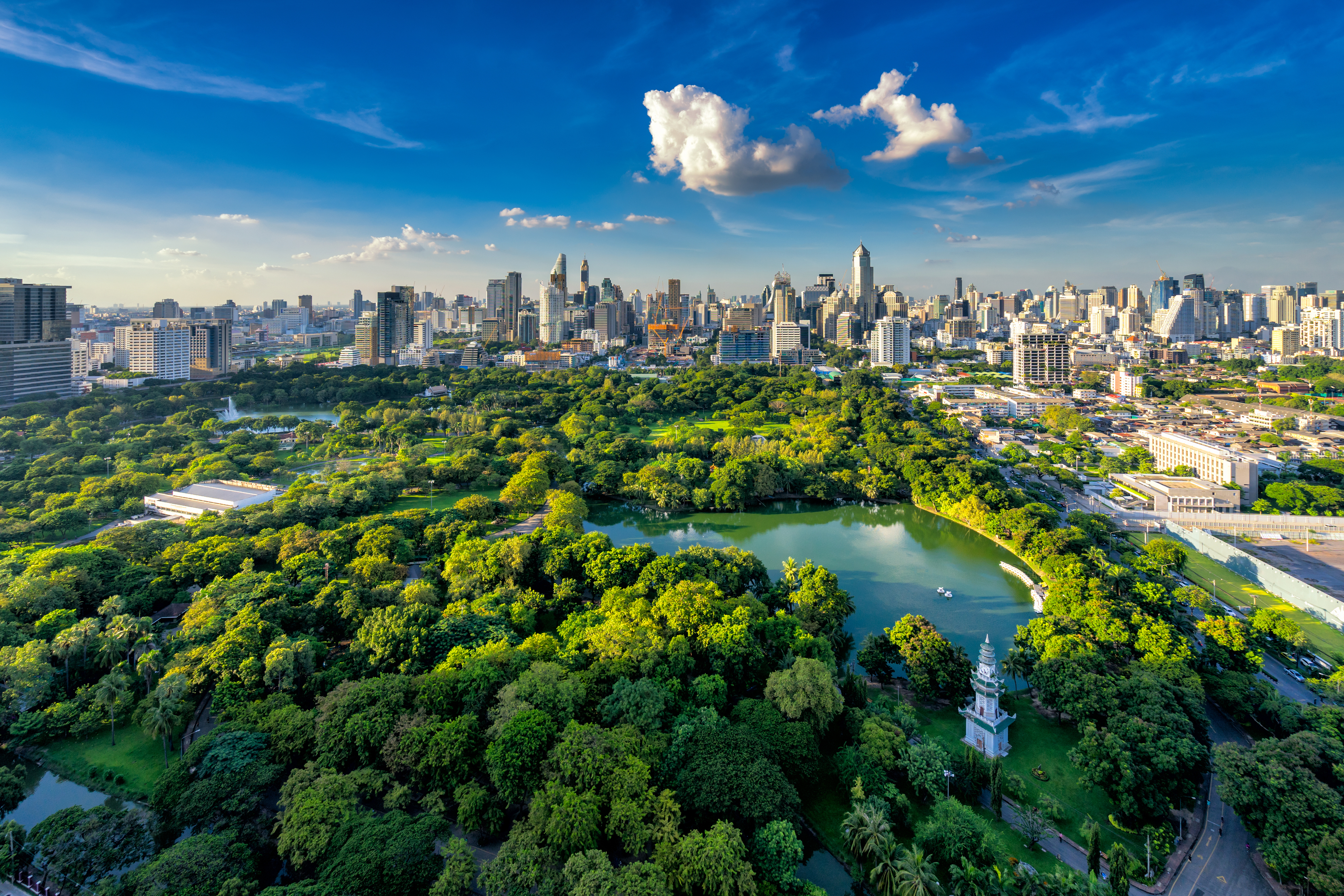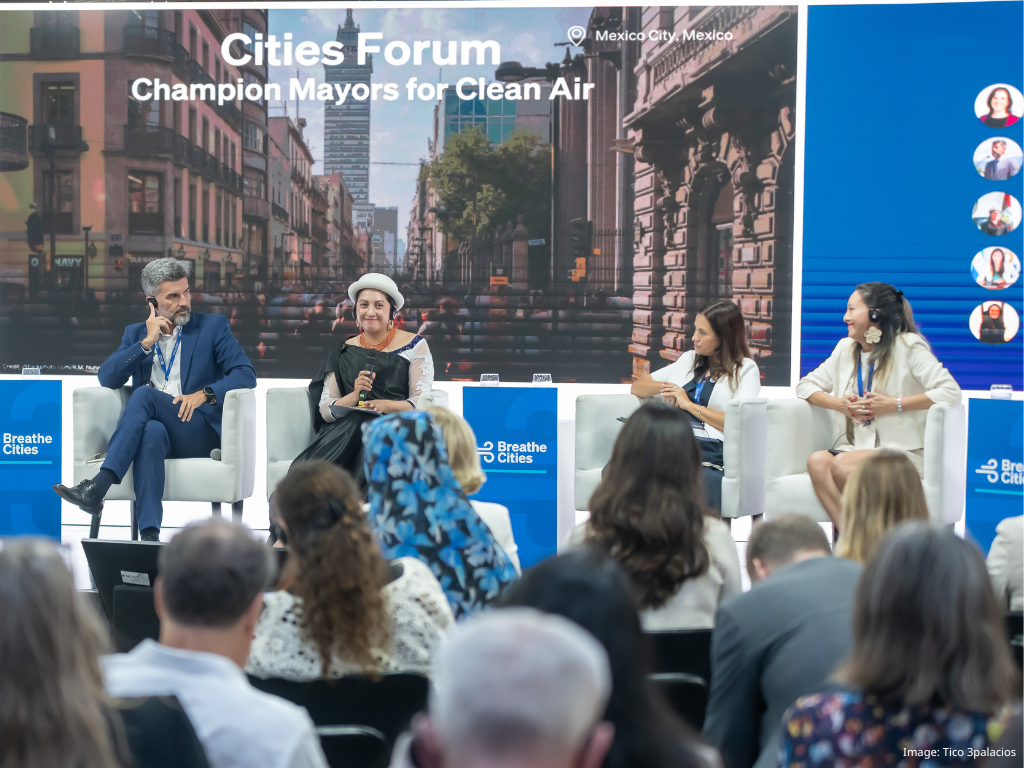From smog to solutions: The case for cleaner air in our cities

If you share our commitment to clean air and would like to hear news from Breathe Cities, sign up to our email updates.
You can opt out at any time. To read our full Privacy Policy, please click here.

For millions of people living in cities around the globe, every breath taken harms their health. According to recent research, just 17 per cent of cities meet the World Health Organisation’s (WHO) air pollution guidelines and not enough is known about this invisible killer.
This is even more concerning when you consider that toxic air affects our health from before we take our first breath until our last. Air pollution accounted for 8.1 million premature deaths in 2021, making it the second leading risk factor for death worldwide. It is also the second biggest risk factor for death of children under five, after malnutrition. It is also the poorest people that are most exposed making this a matter of social injustice.
Urban residents are particularly vulnerable. Over 2.6 billion people live in cities that exceed the guidelines for toxic pollutants like nitrogen dioxide. That is why this challenge is top of the agenda for health experts, government officials and mayors as they gather for a World Health Organisation meeting on air pollution and climate change. The event aims to galvanise commitments to help halve the health impacts of air pollution by 2040.
This kind of clean air action could deliver substantial benefits for our cities. A new analysis from Breathe Cities, an initiative delivered by the Clean Air Fund, C40 Cities and Bloomberg Philanthropies, found that if 63 major cities across five continents followed the WHO’s roadmap, they could avoid 650,000 air pollution-related deaths a year and $1 trillion of economic damage annually by 2040.
We know that things don’t have to be this bad. For some political leaders, action has been taken on tackling this health crisis. When the mayor of London was first elected, experts estimated that it would take 193 years to bring London’s air pollution within legal limits.

Under mayor Sadiq Khan’s leadership, London has introduced the world’s largest clean air zone: the Ultra Low Emission Zone (ULEZ), now covering the entire city and protecting a population of nine million people. Today, because of the policies the mayor has introduced, we are now on course to bring London’s air quality within legal limits next year – 184 years earlier than projected.
Inspired by this progress, Breathe Cities launched in June 2023 to take the lessons learnt in London to the world, with the ambitious goal of reducing air pollution by 30 per cent by 2030 compared to 2019 levels, slashing carbon emissions, enhancing public health and reducing inequalities. Fourteen cities across five continents are now members of this network and taking their own dynamic, local-led action to clean up the air in their neighbourhoods.
But we want to see the benefits of clean air for communities in every part of the globe. This is particularly crucial for rapidly industrialising and expanding cities in Africa, South America, and Asia – the areas that stand to gain the most from reducing air pollution.
This is why Breathe Cities is working with ambitious cities in these regions. Accra has created policies to reduce polluting waste burning across its districts, and the initiative is supporting their efforts to clean the air by installing 67 air quality monitors, creating one of the largest low-cost sensor networks in Africa.
Bogotá has trained women in locally created green jobs programmes, and integrated land-use planning and climate change solutions into its action plan. Jakarta doubled its public transport coverage between 2017 and 2021, and Breathe Cities is supporting the city to further reduce emissions from industry and transport.
Cities like London, Accra, Rio, Bogota and beyond are showing that progress on clean air is possible today. We are demonstrating that we boost our economy, tackle the climate crisis and improve public health – all while ensuring everyone breathes the benefits. We want the same for everyone around the world.
This opinion piece by Mete Coban, Deputy Mayor of London for Energy and Environment, and Jane Burston, CEO of the Clean Air Fund originally appeared on Smart Cities World



